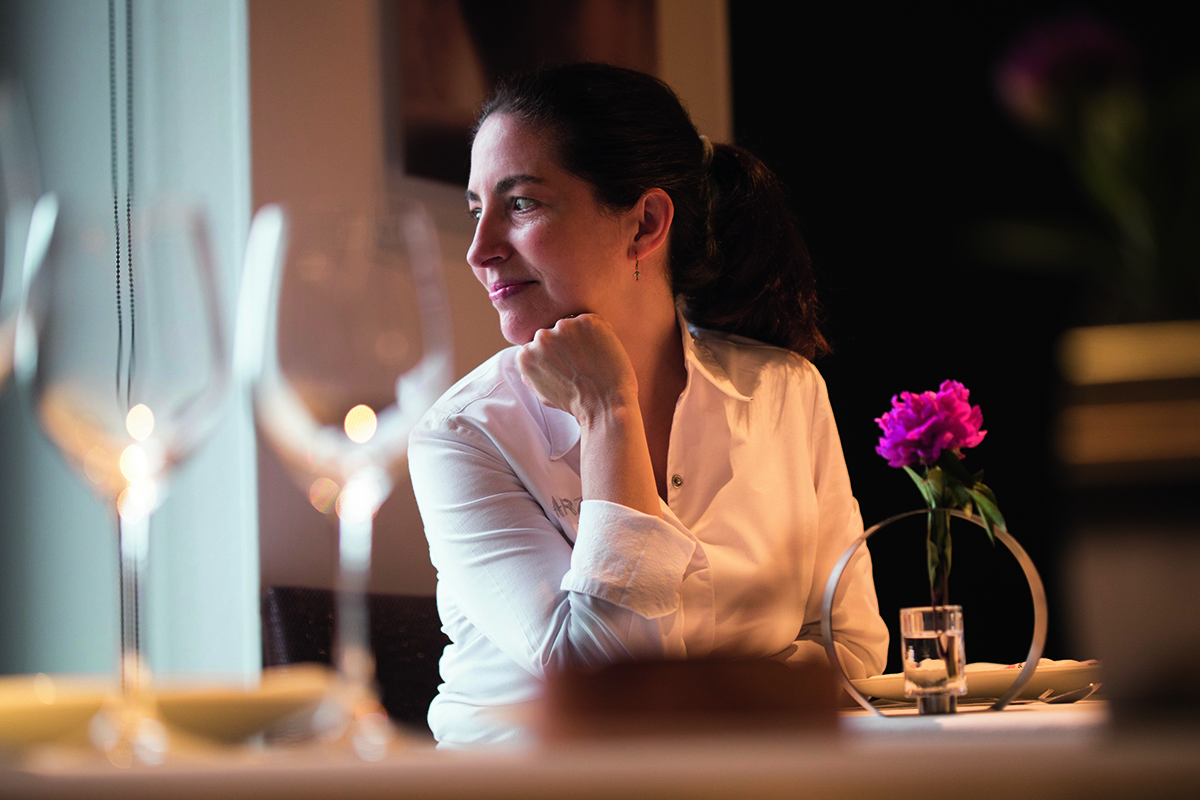
Chef Elena Arzak
Award-winning Basque chef Elena Arzak is the latest in a long line of chefs from the same family. Working in the same eponymous restaurant that her great-grandparents began as a tavern in San Sebastián, she creates innovative yet traditional dishes alongside her father, Juan Mari Arzak, who pioneered the New Basque cuisine in the 1970s
LUX: Tell us about your restaurant’s history.
Elena Arzak: The restaurant has existed since 1897, and I am a fourth generation chef. The restaurant has been in the same building in San Sebastián. When I was a little girl, I lived next to the restaurant, and I used to come round a lot during the summer holidays to visit my grandmother who was a chef, and my mother who also worked here. And to be with my father, who I have now worked with for 25 years.
Follow LUX on Instagram: luxthemagazine
LUX: You travelled a lot. Has your cooking been inspired by any particular place?
EA: I’ve always maintained my family’s philosophy that travelling is a constant source of new ideas. You can get so many ideas in a small neighbouring village, as well as abroad. I like to visit other cultures because the food and ingredients that for them are familiar, for us they are new. And Basque cuisine has a code of flavours. I can pick up ideas and adapt them to my own code of flavours.
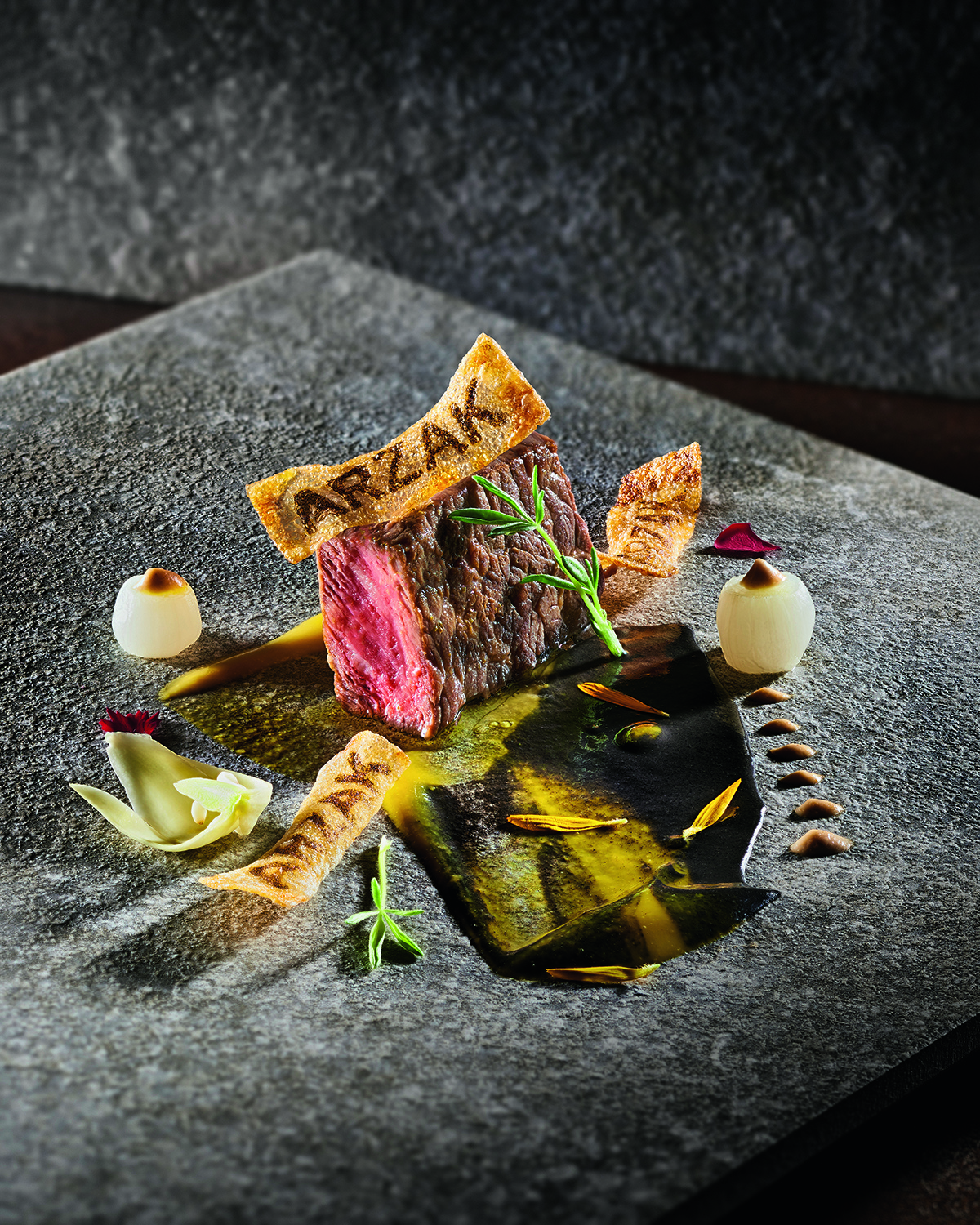
Elena Arzak’s ‘vacuno selado’, a salt beef dish
LUX: Is it correct that your father started the New Basque cuisine?
EA: Well, he started serving nouvelle cuisine in 1976 in Madrid. The Gourmet Review organised a round table where they invited young chefs from Spain and the French chefs Paul Bocuse and Raymond Oliver. My father and his colleague from the three-star restaurant Akelarre in San Sebastián were so impressed with what they heard that they came back to the Basque Country and started a cuisine revolution with a group of chefs. They corrected Basque recipes that were overcooked or made with poor ingredients. They started to introduce new flavours like exotic fruits and ones that were not Basque. And they wanted to get closer to the people in San Sebastián, who love to eat – they went round small villages speaking and giving cooking demonstrations, and sometimes they introduced special prices in the restaurants so that ordinary people could come.
LUX: Do you feel that you have a duty to encourage women?
EA: In Basque culture, women are very strong. When I was growing up, my grandmother was a chef, my mother worked in the restaurant and three quarters of the staff were women. I grew up thinking that this was normal. When I went abroad and I saw I was the only woman in a team of 40, I thought, what happened? Perhaps if I’d been born in another part of the world, I wouldn’t be talking with you now.
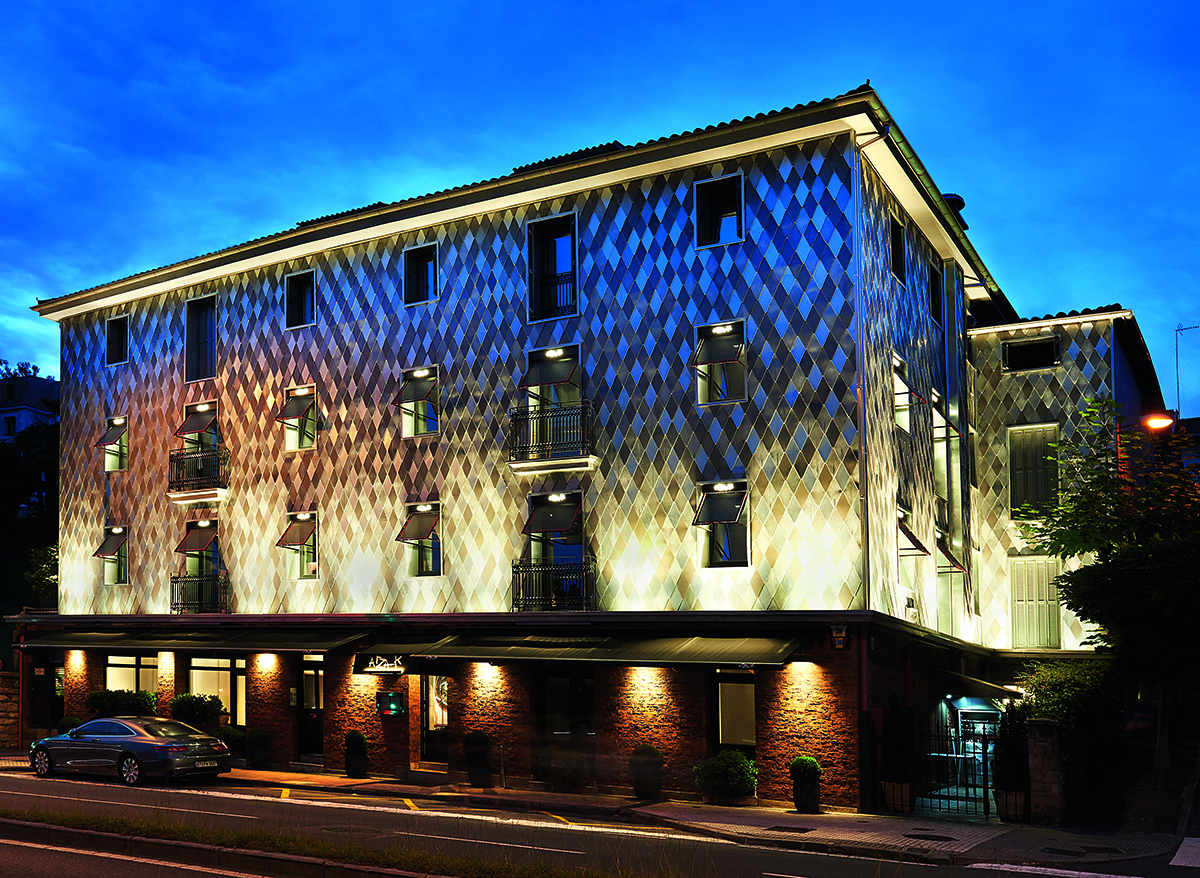
The restaurant building in San Sebastián
LUX: Has the core philosophy of Arzak changed much over the years?
EA: Yes. In the beginning, it was a popular traditional restaurant, a tavern. They served wine, Basque cider and a little bit of Basque food. Then my grandmother changed that style to modern Basque while always thinking of local traditions and flavours. We always like to be up to date – we don’t cook like we did 10 years ago, and we won’t cook the same in 10 years.
LUX: What trends do you see emerging in the next 20 years?
EA: Everybody wants to be eco-social and to be helping producers. For me, the future is going to be about a cuisine that looks simple but is not. There are trends in cuisine – before, we wanted “Wow”, “It’s spectacular”, we needed lights, and now it’s going to be calmer but very interesting.
LUX: How has the rise of sustainability affected you?
EA: Well, here we are very lucky because in San Sebastián there are many farmers who live nearby. But we don’t have curry in the Basque area, or Himalayan salt, and I like to use things like that, so what can I do? Spices have always been traded around the world. But for me, the most important thing is to support the local suppliers.
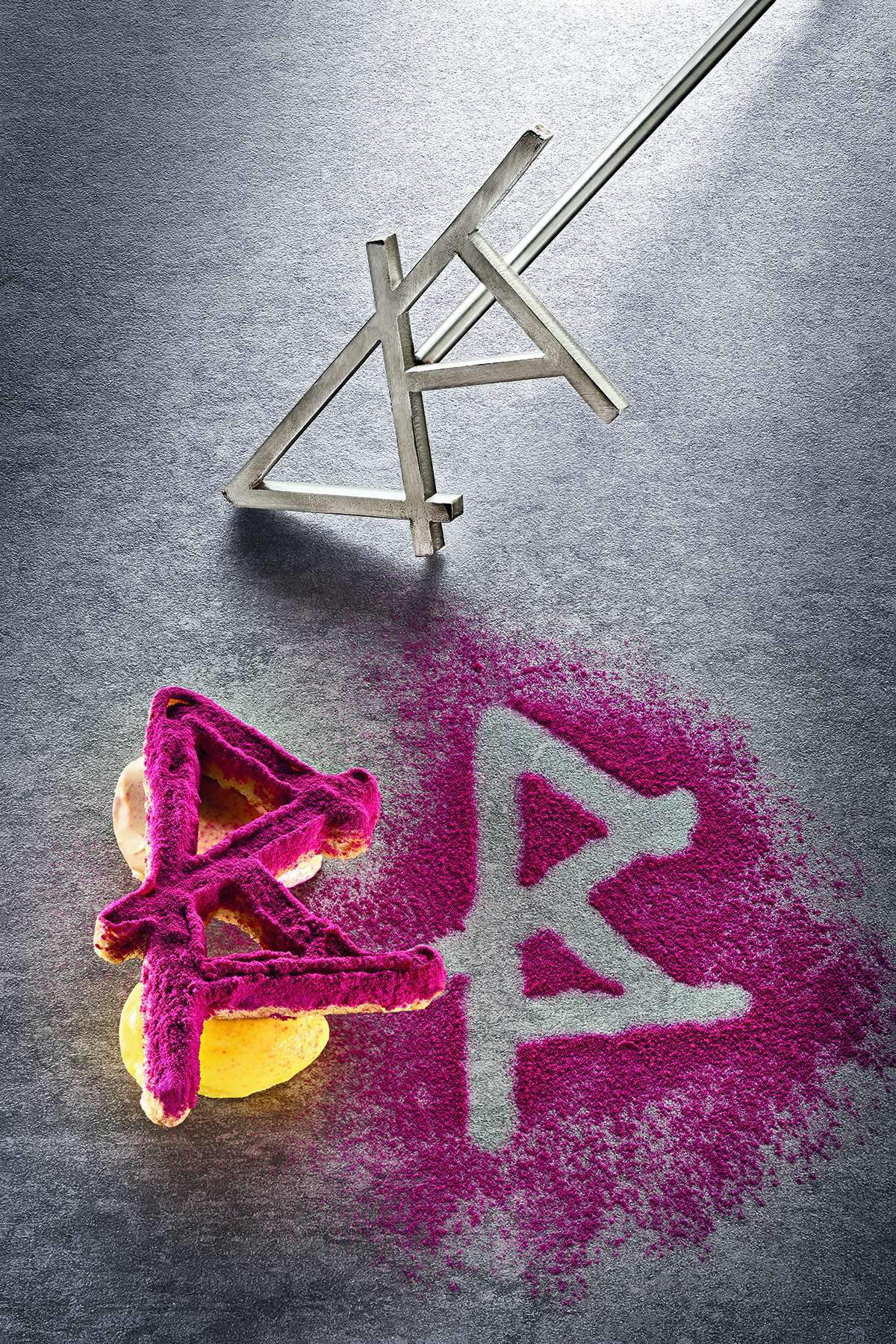
The dessert call ‘Enigma’
LUX: How has the pandemic affected your creativity in the kitchen?
EA: It affected our way of thinking, sleeping, behaving; everybody was in shock. I was so frightened, and if you are frightened you cannot create. But I said to myself that I am a chef and creating is what really makes me relax, so I will create, because it’s the one thing that is mine. I got a lot of positive ideas during this pandemic. My children like to drink infusions so I drank rooibos tea with vanilla with them, and now I want to do an ice cream.
Read more: Chef Ángel León: Ocean Sustainability Supremo
LUX: Which is your favourite of the dishes you’ve made?
EA: I remember the first plate I presented to my father. It was a tuna salad with strings of vegetables. I was 19 years old. For me it was a challenge and I was so nervous, and when he accepted my plate, that for me was the beginning of everything.
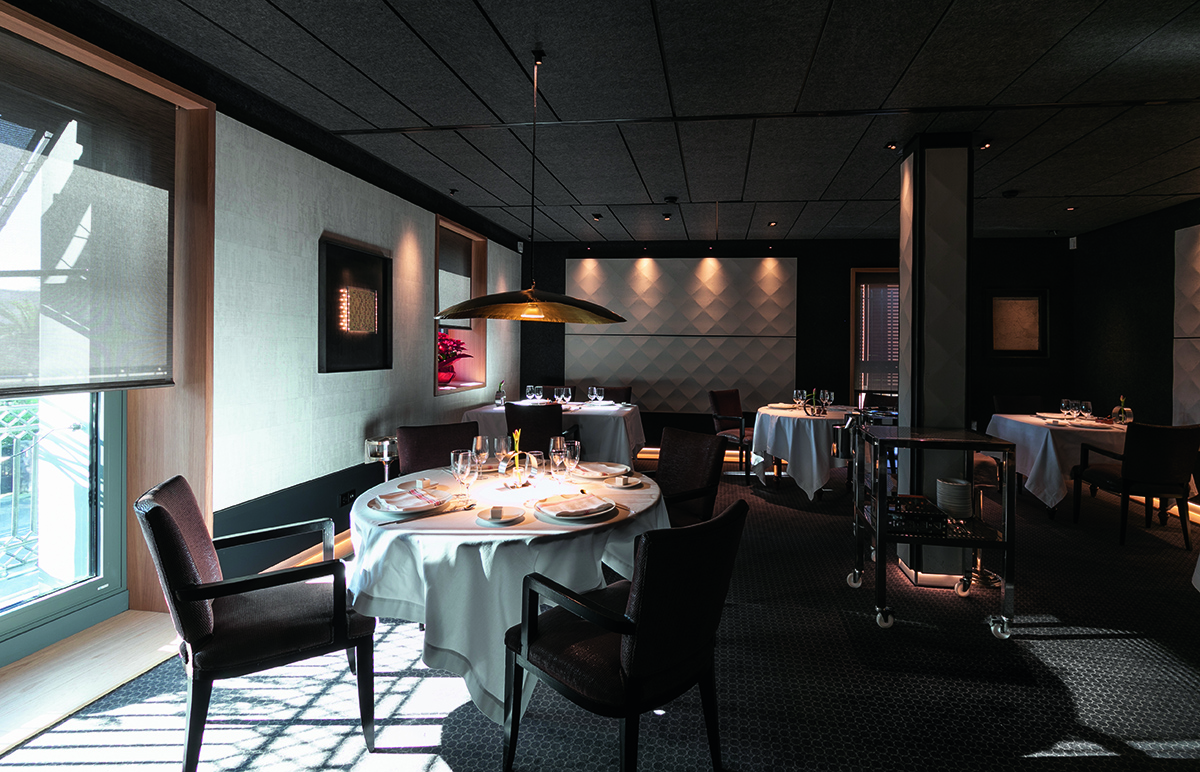
The restaurant’s dining room
LUX: Is there a favourite dish you have by another chef?
EA: The last plate that has really impressed me was by chef Andoni Luis Aduriz at his restaurant Mugaritz. He let me taste a dish called ‘How Long a Kiss Lasts?’ It’s a tongue of ice with sea-urchin cream at the tip.
LUX: Arzak has a strong family dynamic. What has that added to the restaurant?
EA: It has added personality and identity, and people know us. And there is, of course, a super team. Some of the staff worked with my grandmother – imagine that! Being a family business is a plus.
Find out more: www.arzak.es
This article appears in the Summer 2022 issue of LUX







Recent Comments